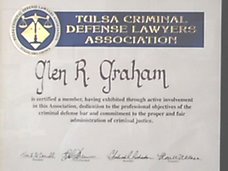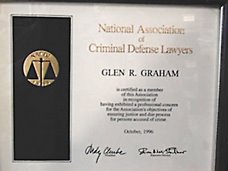"New Federalism"
http://www.wisspd.org/html/980case/casesum/constitution.htm#CONSTRUCTION
It is wise to keep in mind that the exclusionary rule has two distinct rationales: deterrence of governmental misconduct and, separately, judicial integrity. The Supreme Court over the years has essentially limited the rule to the deterrence function, whose ruthless application has led to the rule's slow erosion. But "New Federalism" in general put judicial integrity back into the suppression calculus. New Federalism offers the opportunity to consider the actual rationale originally at play, judicial integrity.
It is plain that United States Supreme Court interpretations of the United States Constitution do not bind the individual state's power to mold higher standards under their respective state constitutions. See Cooper v. California, 386 U.S. 58, 62 (1967). Indeed, the United States Supreme Court, through both majority and dissenting opinions, has explicitly extended invitations to the states to adopt different rules should they deem it appropriate. See Iowa v. Tovar, 541 U.S. 77, 94 (2004) ("We note, finally, that States are free to adopt by statute, rule, or decision any guides to the acceptance of an uncounseled plea they deem useful."); Nichols v. United States, 511 U.S. 738, 748 n.12 (1994) ("Of course States may decide, based on their own constitutions or public policy, that counsel should be available for all indigent defendants charged with misdemeanors."); Oregon v. Mathiason, 429 U.S. 492, 499 (1977) ("It is therefore important to note that the state courts remain free, in interpreting state constitutions, to guard against the evil clearly identified by this case.") (Marshall, J., dissenting); Baxter v. Palmigiano, 425 U.S. 308, 339 n.10 (1976) ("[U]se of incriminating statements can be prohibited by a state court as a matter of public policy in that State.") (Brennan, J., dissenting); Michigan v. Mosley, 423 U.S. 96, 120-121 (1975) (Brennan, J., dissenting); Oregon v. Hass, 420 U.S. 714, 719 (1975) ("[A] State is free as a matter of its own law to impose greater restrictions on police activity than those this Court holds to be necessary upon federal constitutional standards.") (emphasis in original); Lego v. Twomey, 404 U.S. 477, 489 (1972) ("Of course, the States are free, pursuant to their own law, to adopt a higher standard. They may indeed differ as to the appropriate resolution of the values they find at stake."); Cooper, 386 U.S. at 62 ("Our holding, of course, does not affect the State's power to impose higher standards on searches and seizures than required by the Federal Constitution if it chooses to do so.").(See also Robert Bloom, "Judicial Integrity: A Call for its Re-Eemergence in the Adjudication of Criminal Cases" ("The author argues that in the United States, the pendulum has swung too far toward neglecting concerns inherent in the principles of judicial integrity and that judicial integrity needs to be restored.").
For tripartite categorization of state-constitution analysis, see People v. Caballes, IL SCt No. 91547, 5/18/06: "lockstep" (mechanically follow US SCt rulings); "interstitial" (federal decisions are starting point, but state result may diverge, if sufficient reason); "primacy" -(independent state constitutional analysis, federal decisions used only for guidance).
With explicit recognition of the New Federalism movement, then, Wisconsin litigation of 4th amendment suppression issues should no longer be limited to the deterrence function, and caselaw such as Oregon's may be marshaled in support of argument that might otherwise have been overlooked even by the diligent practitioner. If you plan to raise a state constitutional argument, it would be wise to do more than evince disagreement with the federal approach. See, e.g., State v. Kottman, 2005 SD 116, ¶13 (waiver of state constitutional argument: "Counsel advocating a separate constitutional interpretation "must demonstrate that the text, history, or purpose of a South Dakota constitutional provision supports a different interpretation from the corresponding federal provision." ... No such analysis was presented here.").
Interesting critique of this initial spate of New Federalism cases by 7th Circuit Judge (and former Wis. Supreme Court Justice) Sykes, here. Though her critique is largely philosophical, and thus of little immediate practical use to the practitioner her larger point -- that these opinions are grounded more in recent social science studies than historical research -- ought to be absorbed. If these cases do represent a trend, then the court is indeed sensitive to such input, and the practitioner will have to stay current with relevant studies. On the other hand, it wouldn't hurt to attain familiarity with the drafting history of our state constitutional provisions.
Recently, the Wisconsin Supreme Court construed article I, § 8 of the Wisconsin Constitution as providing greater protection against self-incrimination than the Fifth Amendment to the U.S. Constitution, State v. Knapp, 2005 WI 127, ¶¶1-2, __ Wis. 2d __, 700 N.W.2d 899. (No. 2000AP2590-CR), and as providing greater due process protection than the Fourteenth Amendment, State v. Dubose, 2005 WI 126, ¶¶39-41, __Wis. 2d __, 699 N.W.2d 582. (No. 2003AP1690-CR). However, to date, it has not generally construed the search and seizure protections of art. I, sec. 11 of the Wisconsin Constitution to be coextensive with those of differently than the Fourth Amendment to the U.S. Constitution. We therefore interpret the state provision as providing the same level of protection from governmental searches and seizures as the federal provision. See State v. Eason, 2001 WI 98, ¶47, 245 Wis. 2d 206, 629 N.W.2d 625 See State v. Fry, 131 Wis. 2d 158, 388 N.W.2d 565 (1986) ("[W]e are reluctant to construe our state constitutional provision differently than the fourth amendment, especially since the two provisions are intended to protect the same interests and we are unconvinced that the Supreme Court provides less protection than intended by the search and seizure provision of the Wisconsin Constitution."). (Citation omitted.)
In State v. Eason, 2001 WI 98, ¶63, 245 Wis. 2d 206, 629 N.W.2d 625, this court departed from the Supreme Court's holding in United States v. Leon, 468 U.S. 897, 919-20 (1984), where the Supreme Court formulated an exception to the exclusionary rule where a police officer relied in good faith upon a search warrant issued by an independent and neutral magistrate. This court concluded that for the good faith exception to apply, "the State must show that the process used attendant to obtaining the search warrant included a significant investigation and a review by a police officer trained in, or very knowledgeable of, the legal vagaries of probable cause and reasonable suspicion, or a knowledgeable government attorney." Eason, 245 Wis. 2d 206, ¶63. Although the Supreme Court did not require this in Leon, this court held "that Article I, Section 11 of the Wisconsin Constitution requires this process and thus affords additional protection than that which is afforded by the Fourth Amendment." Id.
On the other hand, the result in Roberson may suggest that search and seizure issues will be treated differently because the underlying values they protect are simply different than those at stake in self-incrimination and due process issues. Put baldly, the latter implicate reliability of the fact-finding process, while the former actually distorts it. An old dispute to be sure, whether protection against overweening governmental intrusion trumps other values, but the "new federalism" cases surely renew it. Indeed, the very problem is precisely the one obscured by the court of appeals: New Federalism creates (or, rather, restores) a different paradigm for 4th amendment analysis, one in which "judicial integrity" is at least as important as cost-benefit (or deterrence of police misconduct). It may be that notions of integrity are insufficiently triggered on these particular facts, but it something else altogether to say, as the court of appeals plainly does, that such notions are simply irrelevant. It is very hard not to see this as an opening salvo in an ideological war. Will the supreme court issue a riposte, or will it be content to see the New Federalism line of march halted before it’s even left the trench?
New Federalism - Protecting Individual Rights through State Constitutions
Subscribe to:
Post Comments (Atom)






No comments:
Post a Comment